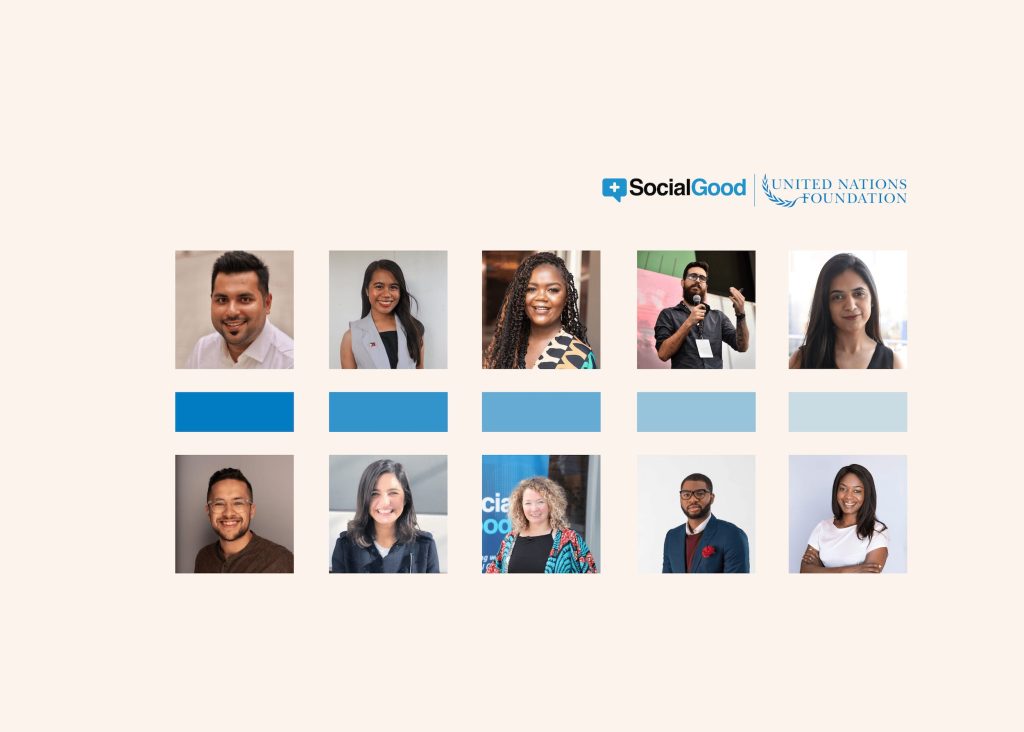From Nigeria to Colombia, engaged change-makers are using the SDGs to drive progress of their native communities. After a troublesome yr navigating the challenges of the COVID-19 pandemic, they replicate on the standing of Sustainable enchancment objective implementation of their nations and what nonetheless should be performed to attain the 2030 Agenda.
to attain the 2030 Agenda, every particular person should do their half to advance the Sustainable enchancment targets (SDGs) of their distinctive native people. entrance and center of SDG progress are +SocialGood Connectors, devoted change-makers the world over who’re working of their native communities to advocate for women’ and women’s rights, name for movement in opposition to local climate change, and get up for primarily the most susceptible members of society. as a outcome of the COVID-19 pandemic unravels a long time of progress, these advocates are seeing the impression firsthand of their communities: from unmet local climate movement targets, to an enhance in psychological misery, to a deterioration in women’s rights. regardless of these setbacks, the Connectors are extra resolute than ever that the worldwide targets are the a means forward — insisting that they are our biggest avenue map for a extra equitable, simply, and sustainable future.
make a journey with the +SocialGood Connectors to see how they navigated the previous yr, how they view SDG challenges and alternatives, and amongst the numerous transformational initiatives they’re engaged on.
1. Neeshad Shafi, Qatar
in latest occasions, the center East — and notably the Arab Gulf nations — has confronted file-breaking temperatures, in some circumstances exceeding a hundred twenty five levels Fahrenheit. The area’s distinctive location and arid circumstances have made it notably susceptible to the devastating outcomes of local climate change, collectively with meals insecurity, uninhabitable areas, and rainfall decline. Neeshad Shafi needs to enhance consciousness about these factors amongst the numerous youthful people in Qatar and inside the broader center East.
To domesticate youth management on local climate movement, he co-based the Arab Youth local climate movement Qatar, a agency that has started to change the narrative round local climate movement and the position that youths can play on this concern. Neeshad believes the area’s leaders are heading inside the most interesting course to deal with local climate change however that they should again up the ensures with extra movement. He hopes that youths may assist strain their governments to honor their commitments and, on the identical time, domesticate their very personal management expertise. be taught Neeshad’s views on the Gulf’s local climate management>>
2. Clarisse pleasure Mañabat, Philippines
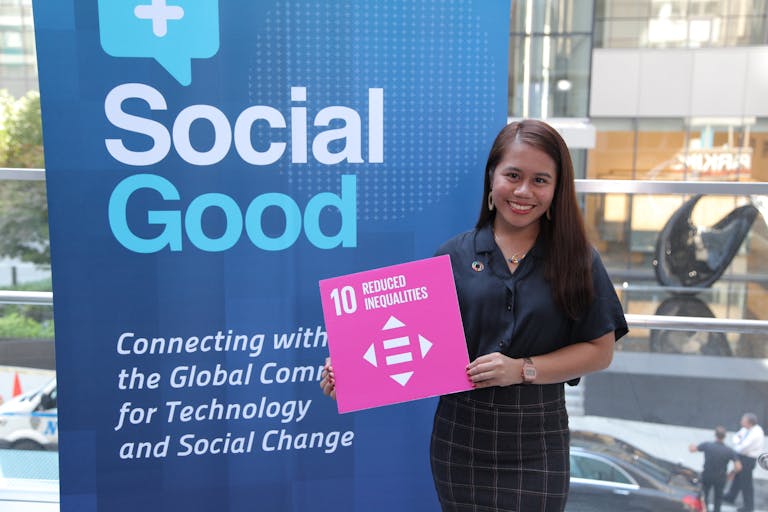
Like a lot of the world, Clary Mañabat spent lots of her hours by way of the pandemic glued to her laptop computer. As one in every of many organizers of the Filipino Youth Volunteer affiliation (Samahan ng Kabataang Boluntaryo ng Pilipinas), she was busy placing collectively digital monetary literacy boot camps for youthful people throughout the Philippines. She and her staff noticed that with extra people staying at house by way of the pandemic — both newly unemployed or pressured to hold positioned on account of COVID-19 lockdowns — there was elevated curiosity in entrepreneurship and enterprise creation. the recognition of the monetary literacy occasions has proven Clary the potential that they will have in advancing progress on SDG8 (respectable work and financial progress). She plans on organizing associated in-particular person occasions as quickly as the pandemic subsides, notably since uneven internet connection stays a hurdle for rather a lot of inside the digital world. be taught extra about Clary’s classes>>
three. Ashley Bass, u.s.a.
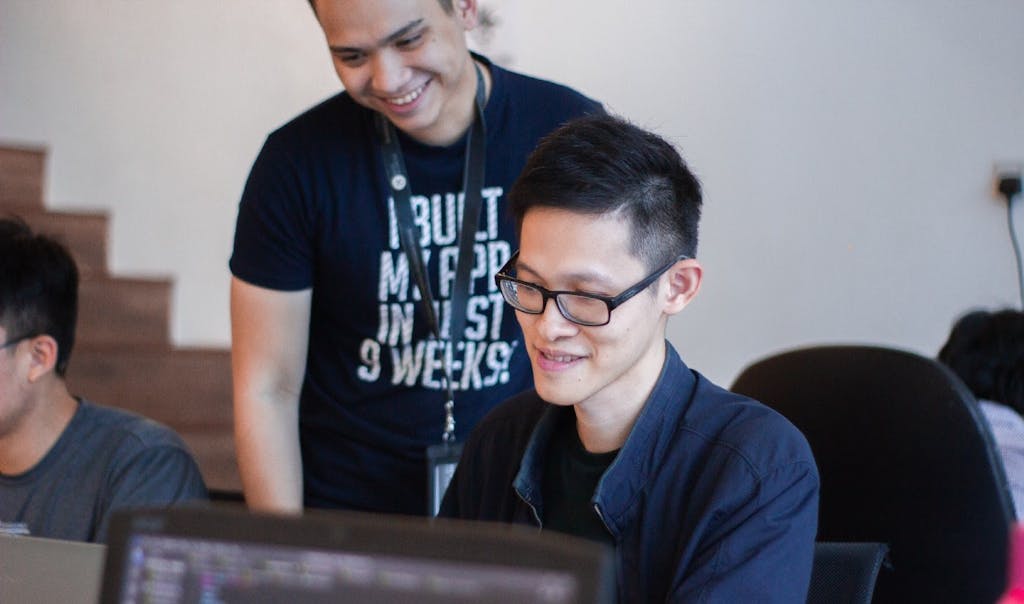
Ashley Bass is a self-described “lifelong learner” and a staunch advocate of extending the identical studying alternatives to all people, everywhere — notably underserved communities. by way of the pandemic, she launched CUNY Upskilling, a curated record of free digital trainings to assist job seekers buy in-demand expertise in extreme-progress industries. She’s additionally working with GitHub to pilot a program that can join U.S. neighborhood faculty college students with tech mentorship and teaching alternatives. regardless of COVID-19 and all of the challenges that obtained here with it, Ashley persevered, “as a outcome of it brings me pleasure to assist people be taught new expertise which will set them up for not solely greater-paying careers however in addition equip them with a mannequin new set of information.” discover out extra about Ashley’s work>>
4. Federico Restrepo, Colombia
Federico Restrepo had on a daily basis acknowledged that women do not revenue from the identical rights as males in his native Colombia. however the start of his niece made the information he be taught with reference to the gender divide rather extra private, and it impressed him to work extra intently on serving to bridge the hole. This previous yr, he and his colleagues at impression Hub Medellín supported 50 feminine-led startups by way of mentorship alternatives, entry to a community of native and worldwide corporations, and potential funding sources.
he is optimistic that their work to deal with a pair of of these systemic injustices can finish in further alternatives for women and a greater Colombia for his niece. try Federico’s deal with gender equality in Colombia>>

5. Priyanka Jaisinghani, u.s.a.
For Priyanka Jaisinghani and her Girlz, FTW neighborhood — a assist house for women and women from greater than seventy three nations — the pandemic was a time to return collectively. The community supplied an space for comfort, connection, and brainstorming round options to widespread challenges, collectively with political instability, monetary insecurity, and violence. On a extra elementary stage, the women additionally obtained here collectively through video calls and WhatsApp group chats to solely discuss about their psychological well being, the very exact concern of burnout, and simple strategies to deal with troublesome circumstances at house. pondering again on what the pandemic has taught her and her group, Priyanka says, “whereas the world has altered in unimaginable methods, this has solely strengthened our resolve, each individually and collectively, to current a protected house for our neighborhood to join, work together, and elevate every completely different collectively with discovering significant assist purposes.” right here’s how Priyanka is fixed to create assist purposes for women and women>>
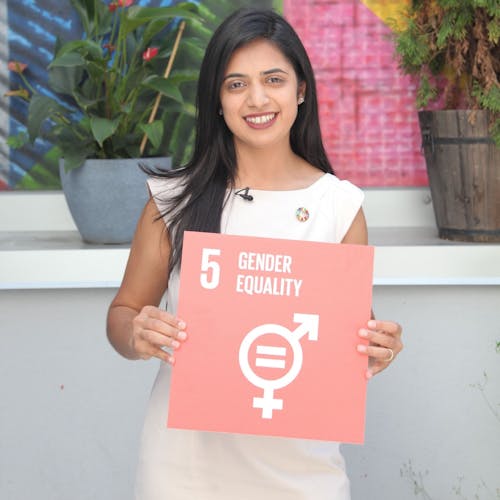
6. James da Costa, uk
psychological well being factors have additionally been on the rise inside the united kingdom. James da Costa labored with the official youth engagement group for the G7 nations, Youth G7 (Y7), to make sure that that the bloc prioritized psychological well being in its coverage ideas and included youthful people’s views with reference to the concern. To assist SDG3 (good well being and properly-being), James has additionally been pondering extra creatively about psychological well being and loneliness and is engaged on pleased Benches, an initiative to encourage strangers to strike up a chat, or merely to say “hey.” He believes this may assist strengthen neighborhood ties and collaboration, which in flip may assist advance the SDGs. be taught extra about James’ bench undertaking and SDG progress inside the united kingdom>>

7. Alejandra Acosta, Spain
When the King and Queen of Spain acknowledged her initiative elevating consciousness about human trafficking and invited her to the royal palace to discuss about it, Alejandra Acosta realized that the “little actions” she was taking in her neighborhood may probably have a a lot greater impression. The COVID-19 pandemic and its restrictions have made life rather extra sturdy for the trafficking victims that Alejandra helps. for rather a lot of, lockdowns have meant the tip of a paycheck, and for rather extra, the internet has develop to be one other supply of terror with on-line sexual exploitation growing dramatically. Her work has additionally been difficult all by way of this period, with staff members going by way of burnout and companions overwhelmed by the mannequin new digital work context. regardless of the challenges, Alejandra stays optimistic: “In some methods, I additionally take into account that the pandemic was actually useful in reshaping our dedication to the agenda, and greater aligning our priorities with the sustainable enchancment targets.” be taught Alejandra’s reflections on her work and Spain’s SDG progress prior to now yr>>
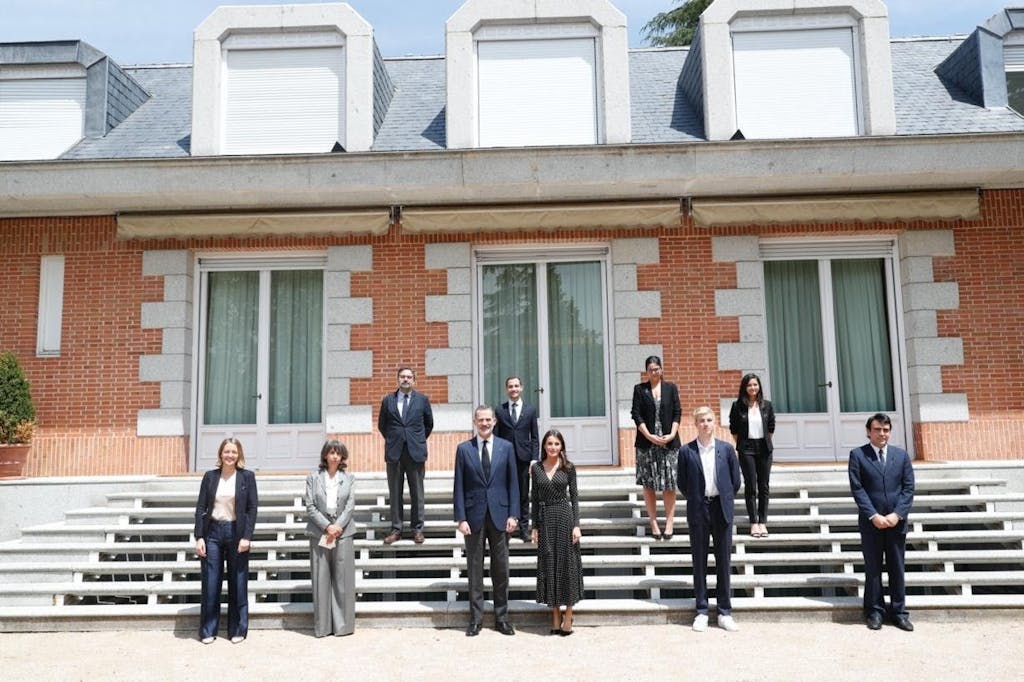
eight. Henriette Weber, Denmark
Henriette Weber is from Denmark, one in every of many nations main on SDG progress worldwide. The nation has prioritized the SDGs in its COVID-19 restoration planning, with a particular emphasis on inexperienced measures. This contains submitting a second voluntary nationwide evaluation centered on reaching formidable local climate targets. Henriette additionally factors to each private and non-private sector progress on sustainability, collectively with car taxes that favor electrical car use, an enhance in enterprise capital investments in inexperienced progress, and Danish people investing in sustainability of their very personal performance — by way of their pension funds, for event. whereas SDG progress from the Nordic nations is pretty rosy, Henriette says that there is nonetheless extra work to do. be taught Henriette’s replace on Nordic nations’ sustainability efforts>>
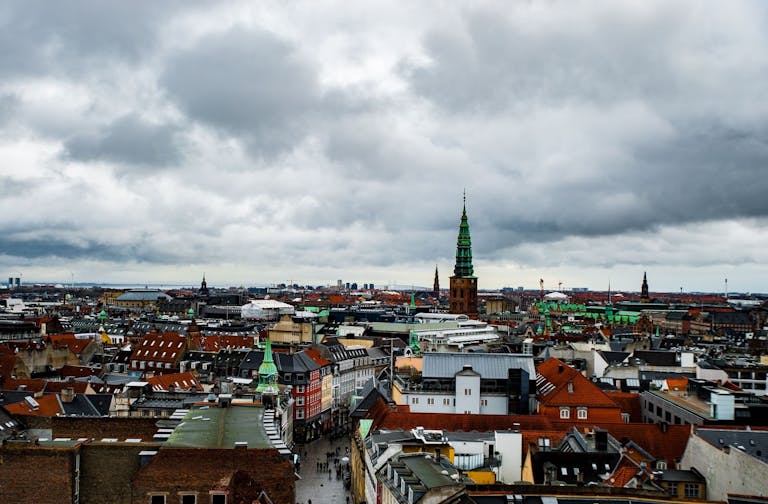
9. Abraham Ologundudu, Nigeria
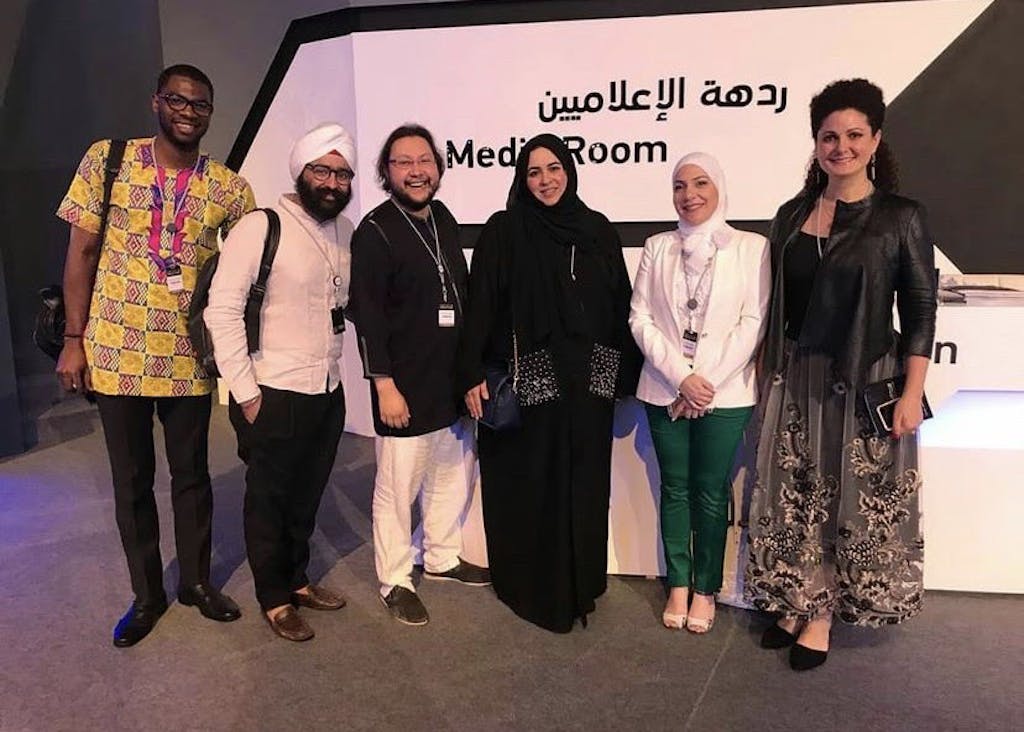
collectively with his background in media and communications, Abraham Ologundudu raises consciousness with reference to the SDGs from a quantity of creative fronts. by way of the pandemic, he and his +SocialGood Lagos staff have been internet hosting dialogues to foster collaboration amongst stakeholders engaged on the targets in Nigeria. Abraham may even be engaged on an audio documentary to clarify the inequalities confronted by women in Nigeria’s tech and design sector — a male-dominated area — and the means they’re overcoming these challenges to thrive professionally. In his work with +SocialGood Lagos, Abraham and his staff are additionally encouraging extra youthful people to embrace the SDGs by way of workshops, civic studying alternatives, and expertise enchancment. He factors to a quantity of constructive steps that his nation is taking to be extra clear round its SDG progress however emphasizes its rating on the SDG Index (a hundred and sixty/one hundred sixty five) — with progress stagnating on lots of the 17 targets — as worrying proof that the 2030 Agenda stays to be a “far-fetched actuality.” be taught extra about Abraham’s outlook on Nigeria’s SDG progress>>
10. Nashilongo Gervasius, Namibia
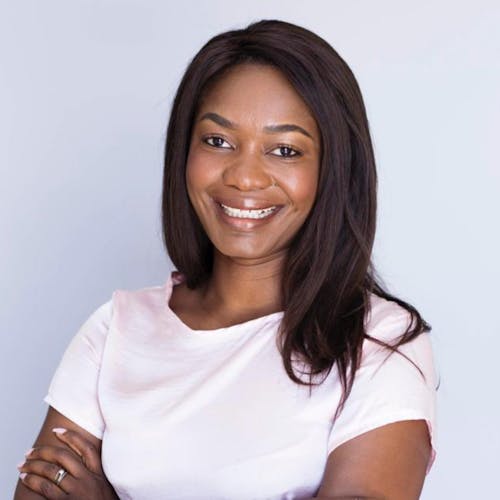
In Namibia, on-line harassment and violence in opposition to women has develop to be so prevalent that even the principal woman spoke out about her experiences being bullied by on-line trolls. This scourge solely obtained worse all by way of pandemic lockdowns. as a outcome of the co-founding father of the Internet Society Namibia chapter, Nashilongo Gervasius spends a lot of her time gathering information about this concern and the most interesting means it impacts the SDGs. The group at the second revealed an on-line report card outlining how Namibia ranks when it entails women’s empowerment and internet entry, on-line safety, and digital training. Spoiler alert: The numbers are faraway from rosy. be taught extra about Nashilongo’s work empowering women on-line>>

